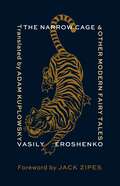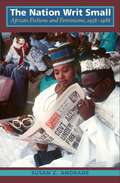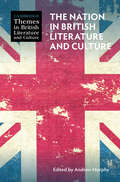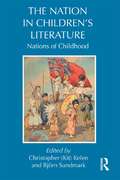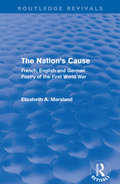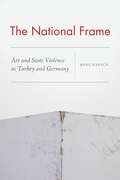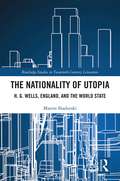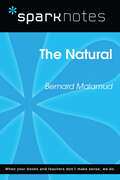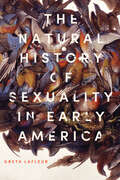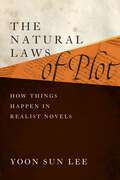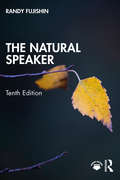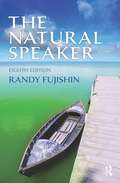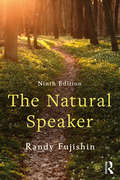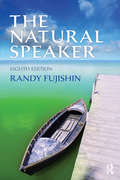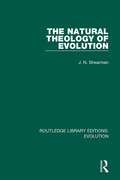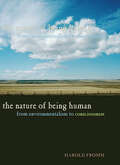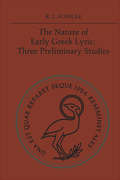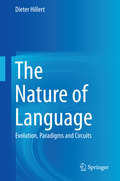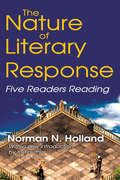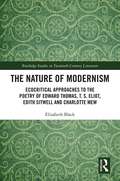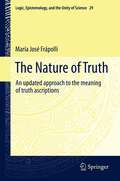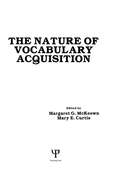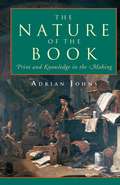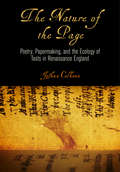- Table View
- List View
The Narrow Cage and Other Modern Fairy Tales (Weatherhead Books on Asia)
by Vasily EroshenkoVasily Eroshenko was one of the most remarkable transnational literary figures of the early twentieth century: a blind multilingual Esperantist from Ukraine who joined left-wing circles in Japan and befriended the famous modernist writer Lu Xun in China. Born in a small Ukrainian village in imperial Russia, he was blinded at a young age by complications from measles. Seeking to escape the limitations imposed on the blind, Eroshenko became a globe-trotting storyteller. He was well known in Japan and China as a social activist and a popular writer of political fairy tales that drew comparisons to Hans Christian Andersen and Oscar Wilde.The Narrow Cage and Other Modern Fairy Tales presents a selection of Eroshenko’s stories, translated from Japanese and Esperanto, to English readers for the first time. These fables tell the stories of a religiously disillusioned fish, a jealous paper lantern, a scholarly young mouse, a captive tiger who seeks to liberate his fellow animals, and many more. They are at once inventive and politically charged experiments with the fairy tale genre and charming, lyrical stories that will captivate readers as much today as they did during Eroshenko’s lifetime. In addition to eighteen fairy tales, the book includes semiautobiographical writings and prose poems that vividly evoke Eroshenko’s life and world.
The Nation Writ Small: African Fictions and Feminisms, 1958–1988
by Susan Z. AndradeIn The Nation Writ Small, Susan Z. Andrade focuses on the work of Africa's first post-independence generation of novelists, explaining why male writers came to be seen as the voice of Africa's new nation-states, and why African women writers' commentary on national politics was overlooked. Since Africa's early female novelists tended to write about the family, while male authors often explicitly addressed national politics, it was assumed that the women writers were uninterested in the nation and the public sphere. Challenging that notion, Andrade argues that the female authors engaged national politics through allegory. In their work, the family stands for the nation; it is the nation writ small. Interpreting fiction by women, as well as several feminist male authors, she analyzes novels by Flora Nwapa and Buchi Emecheta (Nigeria); novellas by Ousmane Sembène, Mariama Bâ, and Aminata Sow Fall (Senegal); and bildungsromans by Tsitsi Dangarembga (Zimbabwe), Nuruddin Farah (Somalia), and Assia Djebar (Algeria). Andrade reveals the influence of Africa's early women novelists on later generations of female authors, and she highlights the moment when African women began to write about macropolitics explicitly rather than allegorically.
The Nation in British Literature and Culture (Cambridge Themes in British Literature and Culture)
by Andrew MurphyThe Nation and British Literature and Culture charts the emergence of Britain as a political, social and cultural construct, examining the manner in which its constituent elements were brought together through a process of amalgamation and conquest. The fashioning of the nation through literature and culture is examined, as well as counter narratives that have sought to call national orthodoxies into question. Specific topics explored include the emergence of a distinctively national literature in the early modern period; the impact of French Revolution on conceptions of Britishness; portrayals of empire in popular and literary fiction; popular music and national imagining; the marginalisation and oppression of particular communities within the nation. The volume concludes by asking what implications an extended set of contemporary crises have for the ongoing survival both of the United Kingdom, both as a political unit and as a literary and cultural point of identity.
The Nation in Children's Literature: Nations of Childhood (Children's Literature and Culture)
by Christopher Kit Kelen Björn SundmarkThis book explores the meaning of nation or nationalism in children’s literature and how it constructs and represents different national experiences. The contributors discuss diverse aspects of children’s literature and film from interdisciplinary and multicultural approaches, ranging from the short story and novel to science fiction and fantasy from a range of locations including Canada, Australia, Taiwan, Norway, America, Italy, Great Britain, Iceland, Africa, Japan, South Korea, India, Sweden and Greece. The emergence of modern nation-states can be seen as coinciding with the historical rise of children’s literature, while stateless or diasporic nations have frequently formulated their national consciousness and experience through children’s literature, both instructing children as future citizens and highlighting how ideas of childhood inform the discourses of nation and citizenship. Because nation and childhood are so intimately connected, it is crucial for critics and scholars to shed light on how children’s literatures have constructed and represented historically different national experiences. At the same time, given the massive political and demographic changes in the world since the nineteenth century and the formation of nation states, it is also crucial to evaluate how the national has been challenged by changing national languages through globalization, international commerce, and the rise of English. This book discusses how the idea of childhood pervades the rhetoric of nation and citizenship, and how children and childhood are represented across the globe through literature and film.
The Nation's Cause: French, English and German Poetry of the First World War (Routledge Revivals)
by Elizabeth A. MarslandAs we approach the centenary of the outbreak of the First World War, this timely reissue, first published in 1991, evaluates the function of poetry in wartime Europe, arguing that war poetry must be understood as a social as well as a literary phenomenon. As well as locating the work of well-known French, English and German war poets in a European context, Elizabeth Marsland discusses lesser-known poetry of the war years, including poems by women and the neglected tradition of civilian protest through poetry. Identifying shared characteristics as well as the unique features of each nation’s poetry, The Nation’s Cause affords new insight into the relationship between nationalism and the social attitudes that determined the conduct of war.
The National Frame: Art and State Violence in Turkey and Germany
by Banu KaracaBased on long-term ethnographic research in the art worlds of Istanbul and Berlin, The National Frame rethinks the politics of art by focusing on the role of art in state governance. It argues that artistic practices, arts patronage and sponsorship, collecting and curating art, and the modalities of censorship continue to be refracted through the conceptual lens of the nation-state, despite the globalization of the arts. By examining discussions of the civilizing function of art in Turkey and Germany and particularly moments in which art is seen to cede this function, The National Frame reveals the histories of violence on which the production, circulation, and, very understanding of art are predicated. Karaca examines this darker side of art in two cities in which art and its institutions have been intertwined with symbolic and material dispossession. The particularities of German and Turkish contexts, both marked by attempts to claim modern nationhood through the arts; illuminate how art is staked to memory and erasure, resistance and restoration; and why art has been at once vital and unwieldy for national projects. As art continues to be called upon to engage the past and imagine different futures, The National Frame explores how to reclaim art’s emancipatory potential.
The Nationality of Utopia: H. G. Wells, England, and the World State (Routledge Studies in Twentieth-Century Literature)
by Maxim ShadurskiSince its generic inception in 1516, utopia has produced visions of alterity which renegotiate, subvert, and transcend existing places. Early in the twentieth century, H. G. Wells linked utopia to the World State, whose post-national, post-Westphalian emergence he predicated on English national discourse. This critical study examines how the discursive representations of England’s geography, continuity, and character become foundational to the Wellsian utopia and elicit competing response from Wells’s contemporaries, particularly Robert Hugh Benson and Aldous Huxley, with further ramifications throughout the twentieth century. Contextualized alongside modern theories of nationalism and utopia, as well as read jointly with contemporary projections of England as place, reactions to Wells demonstrate a shift from disavowal to retrieval of England, on the one hand, and from endorsement to rejection of the World State, on the other. Following Huxley’s attempts to salvage the residual traces of English culture from their abuses in the World State, England’s dissolution in the throes of alterity takes increasing precedence over the visions of a post-national world order and dissents from the Wellsian utopia. This trend continues in the work of George Orwell, Anthony Burgess, J. G. Ballard, and Julian Barnes, whose future scenarios warn against a world without England. The Nationality of Utopia investigates utopia’s capacity to deconstruct and redeploy national discourse in ways that surpass fear and nostalgia.
The Natural (SparkNotes Literature Guide Series)
by SparkNotesThe Natural (SparkNotes Literature Guide) by Bernard Malamud Making the reading experience fun! Created by Harvard students for students everywhere, SparkNotes is a new breed of study guide: smarter, better, faster. Geared to what today's students need to know, SparkNotes provides: *Chapter-by-chapter analysis *Explanations of key themes, motifs, and symbols *A review quiz and essay topicsLively and accessible, these guides are perfect for late-night studying and writing papers
The Natural History of Sexuality in Early America
by Greta LaFleurHow natural history made sex scientific in the eighteenth century.If sexology—the science of sex—came into being sometime in the nineteenth century, then how did statesmen, scientists, and everyday people make meaning out of sex before that point? In The Natural History of Sexuality in Early America, Greta LaFleur demonstrates that eighteenth-century natural history—the study of organic life in its environment—actually provided the intellectual foundations for the later development of the scientific study of sex. Natural historians understood the human body to be a "porous envelope," eminently vulnerable to its environment. Yet historians of sexuality have tended to rely on archival evidence of genital-based or otherwise bodily sex acts for source material. Through careful readings of both elite natural history texts and popular print forms that circulated widely in the British North American colonies—among them Barbary captivity, execution, cross-dressing, and anti-vice narratives—LaFleur traces the development of a broad knowledge of sexuality defined in terms of the dynamic relationship between the human and the natural, social, physical, and climatic milieu.At the heart of this book is the question of how to produce a history of sexuality for an era in which modern vocabularies for sex and desire were unavailable. LaFleur demonstrates how environmental logic was used to explain sexual behavior on a broad scale, not just among the educated elite who wrote and read natural historical texts. LaFleur reunites the history of sexuality with the history of race, demonstrating how they were bound to one another by the emergence of the human sciences. Ultimately, The Natural History of Sexuality in Early America not only rewrites all dominant scholarly narratives of eighteenth-century sexual behavior but also poses a major intervention into queer theoretical understandings of the relationship between sex and the subject.
The Natural Laws of Plot: How Things Happen in Realist Novels (Alembics: Penn Studies in Literature and Science)
by Yoon Sun LeeIs plot a line, an arc, or a shape? None of these. Rather than thinking of plot as a sequence of events or actions put into place solely through human agency against the backdrop of setting, this book questions why we should distinguish between plot and setting—and indeed, whether we can make such a distinction. After all, plot, Yoon Sun Lee contends, cannot be disentangled from the material setting in which it takes place.In The Natural Laws of Plot, Lee connects the history of the novel and the history of science to show how plot in the realist novel is given shape by the characteristics of the physical world—and how in turn, plot serves as the avenue through which the realist novel participates in the same lines of inquiry about the world as pursued by the natural and physical sciences. Lee argues that the novel emerges and evolves in tandem with the development of scientific practices and concepts in eighteenth- and nineteenth-century Europe to investigate the idea of a unified and objective world. Drawing on readings from Defoe, Austen, Scott, and many others, Lee demonstrates how bodies, human and non-human, behave according to laws that are built into worlds by plot, and how they are subject to causes and consequences that can occur independently of individual action, social forces, or metaphysical destiny. This interest in representing and exploring how things happen sets the novel apart from other literary genres, and makes the history of science integral to the understanding of the history and theory of the novel, and of narrative.Plot, Lee shows us, is immersive and powerful, because it satisfies our wish to know how things happen in a coherent, objective, and possibly real world.
The Natural Speaker
by Randy FujishinThe Natural Speaker is a friendly step-by-step guide to public speaking that explores the fundamental skills necessary to present a natural and rewarding speech to any audience. By providing an overview of speech construction, practice, and delivery, this book is designed to enhance and improve upon students' natural strengths. Featuring a warm and humorous writing style, The Natural Speaker illustrates the concepts and skills required for enjoyable public speaking, and Randy Fujishin invites readers to view speaking as a life-long journey. This tenth edition features a new chapter on speaking in online contexts, including leading or participating in online meetings, using digital presentation tools, and guidelines for effective online PowerPoint presentations, as well as additional focus on intercultural considerations and new Internet student activities at the end of each chapter. This book serves as an accessible core textbook for Public Speaking and Introduction to Communication courses and also provides guidance for individual readers and public speaking workshops. Online resources include an instructor’s manual with sample test questions and exercises.
The Natural Speaker (Eighth Edition)
by Randy FujishinEncourages students to research, organize, and deliver an effective speech<P> By providing a basic knowledge of speech construction, practice, and delivery, The Natural Speaker is designed to enhance and improve students' natural speaking strengths. Featuring a warm, simple, and humorous writing style, this title presents the fundamental concepts and skills required for effective speaking.
The Natural Speaker (Myspeechkit Ser.)
by Randy FujishinThe Natural Speaker is a friendly step-by-step guide to public speaking that explores the fundamental skills necessary to present a natural, and rewarding speech to any audience. By providing an overview of speech construction, practice, and delivery, this book is designed to enhance and improve upon students' natural strengths. Featuring a warm, and humorous writing style, The Natural Speaker illustrates the concepts and skills required for enjoyable public speaking, and Randy Fujishin invites readers to view speaking as a life-long journey. This ninth edition has been updated throughout to reflect the integration of online media in public speaking today—with sections on digital visual aids, digital note taking, and speaking on YouTube—and now features guidance on speaking to multicultural audiences.
The Natural Speaker (Myspeechkit Ser.)
by Randy FujishinThe Natural Speaker is a concise, practical, inexpensive, student-friendly guide to public speaking that explores the basic skills necessary to present a natural, effective, and rewarding speech to any audience. By providing a basic knowledge of speech construction, practice, and delivery, this book is designed to enhance and improve students' natural speaking strengths. Featuring a warm, simple, and humorous writing style, The Natural Speaker presents the fundamental concepts and skills required for effective speaking.
The Natural Theology of Evolution (Routledge Library Editions: Evolution #12)
by J. N. ShearmanOriginally published in 1915, The Natural Theology of Evolution looks at the concept of natural theology, examining the argument for the existence of God based on reason and ordinary experiences of nature. The book looks at natural theology in light of Darwin’s theory of evolution, and how this important discovery affected belief in intelligent design. The book argues that the discovery of evolution, far from diminishing the existence of God, provides stronger proof for an intelligently designed earth and therefore the existence of God. This book provides a unique and interesting take on the debates surrounding evolution in the late 19th and early 20th century. It will be of interest to philosophers, historians of religion and natural historians alike.
The Nature of Being Human: From Environmentalism to Consciousness
by Harold FrommAlthough the physical relationship between the natural world and individuals is quantifiable, the psychosocial effect of the former on the latter is often less tangible. What, for instance, is the connection between the environment in which we live and our creativity? How is our consciousness bounded and delimited by our materiality? And from whence does our idea of self and our belief in free will derive and when do our surroundings challenge these basic assumptions? Ecocritic Harold Fromm's challenging exploration of these and related questions twines his own physical experiences and observations with insights gathered from both the humanities and the sciences. Writing broadly and personally, Fromm explores our views of nature and how we write about it. He ties together ecology, evolutionary psychology, and consciousness studies to show that our perceived separation from our surroundings is an illusory construct. He argues for a naturalistic vision of creativity, free will, and the literary arts unimpeded by common academic and professional restraints. At each point of this intellectual journey, Fromm is honest, engaging, and unsparing.Philosophical, critical, often personal, Fromm's sweeping, interdisciplinary, and sometimes combative essays will change the way you think about your place in the environment.
The Nature of Being Human: From Environmentalism to Consciousness
by Harold FrommEssays exploring humanity’s connection with the environment.Although the physical relationship between the natural world and individuals is quantifiable, the psychosocial effect of the former on the latter is often less tangible. What, for instance, is the connection between the environment in which we live and our creativity? How is our consciousness bounded and delimited by our materiality? And from whence does our idea of self and our belief in free will derive and when do our surroundings challenge these basic assumptions?Eco-critic Harold Fromm’s challenging exploration of these and related questions twines his own physical experiences and observations with insights gathered from both the humanities and the sciences. Writing broadly and personally, Fromm explores our views of nature and how we write about it. He ties together ecology, evolutionary psychology, and consciousness studies to show that our perceived separation from our surroundings is an illusory construct. He argues for a naturalistic vision of creativity, free will, and the literary arts unimpeded by common academic and professional restraints. At each point of this intellectual journey, Fromm is honest, engaging, and unsparing.Philosophical, critical, often personal, Fromm’s sweeping, interdisciplinary, and sometimes combative essays will change the way you think about your place in the environment.“How rare it is that a work of philosophical inquiry is written with the passion of a cri de coeur, but Harold Fromm’s brilliantly conceived The Nature of Being Human resonates with such uncanny depths. Here is an utterly engrossing first-person account of a harrowing pilgrimage into the 21st century and its disturbing revelations about humankind’s truest nature, in contrast to the comforting solicitudes of a “humanist” past. If the role of the philosopher is to force us to think, Harold Fromm is a born philosopher.” —Joyce Carol Oates“Fromm, an erudite, prolific author of numerous works ranging from ecocritical commentary to self-reflective discourses, presents a compilation of essays that illuminate his views regarding why most Americans seem oblivious to the destruction of their environment.” —Choice“Fromm’s journey from victim, to campaigner, to pioneer of eco-criticism (that is, the study of literature from an ecological viewpoint) is documented here, alongside challenging analyses of man’s place in nature, free will, our relationship with technology and more. Scholarly but engaging, Fromm is an environmentalist, but also a realist.” —Organic Gardener
The Nature of Early Greek Lyric: Three Preliminary Studies
by Robert L. FowlerThree important literary questions in early Greek lyrics are addressed in this study. First, Fowler attempts to determine the extent that Homer and epic poetry generally influenced the lyric poets, with respect to both the style of compositions and their content. Identifying the certain examples of influence – which are far fewer than often thought – he analyses the technique of imitation, tracing a development from simpler to more complex as the archaic period proceeds. Throughout this and the following chapter, he often finds occasion to take issue with the famous and influential view of the early Greek mind championed by Bruno Snell and Hermann Fränkel. In the second chapter Fowler studies the organization of individual poems, identifying compositional principles that may be used to solve literary and textual problems. Some of these principles, like ring-composition, are old familiars; others are not. All are found to be more pervasive than is often realized, and reflect an attitude to composition rather different from the disorderly and associative techniques traditionally ascribed to the lyrics poets. The last chapter explores the nature of genres in the archaic period, starting from the vexed question of the definition of elegy. In all the genres associated with particular occasions, the author finds that the poets' professional skills and self-consciousness became more important than the purely occasional aspects of their composition. Observations of interest are made on, among others, citharodic songs, epigrams and epinician odes; and elegy in the end turns out, paradoxically, not to be a true genre at all.
The Nature of Language
by Dieter HillertThe Nature of Language addresses one of the most fundamental questions of mankind: how did language evolve, and what are the neurobiological and cognitive foundations of language processing? These questions are explored from different perspectives to discuss the building blocks of language evolution and how they developed in the way they can be found in modern humans. Primarily, neural mapping methods of cognition presented in this research provide extremely valuable data about the neural circuitries that are involved in language processing. Thus, the book explores and illustrates cortical mapping in typical language patterns, but also cortical mapping in atypical populations that fail to process particular language aspects. A neurobiological stance is used to inquire about how language abilities of our species evolved to communicate for the purposes of conveying information such as ideas, emotions, goals, and humor. The evolutionary language model presented builds on the cognitive abilities of our ancestors, and it allows readers to draw a variety of expansive conclusions from that, including the idea that human language as an interface system provides the basis for consciousness.
The Nature of Literary Response: Five Readers Reading
by Clark McPhailIn a rare fusion of literary sensibility with psychological research, Norman N. Holland brings to light important data showing how personality—in the fullest sense of character development and identity—affects the way in which we read and interpret literature. This book will show that readers respond to literature in terms of their own lifestyle, character, personality, or identity. By such terms, psychoanalytic writers mean an individual's characteristic way of dealing with the demands of outer and inner reality. Each new experience develops the style, while the pre-existing style shapes each new experience.The sub-title of this book, Five Readers Reading, reflects the fact that the author, a distinguished literary critic, worked with five student readers, using a battery of psychological tests and extensive interviews to study the ways they reacted to classic short stories by Faulkner, Hemingway, and others. Combining his own interpretation of the stories with his understanding of the readers and their reactions, Holland derives four principles that inform literary response. He then goes on to show how these principles apply, not just to literary response, but to the way personality shapes any experience.The book carries Holland's previous studies of creation and responsive recreation forward to a major theoretical statement. He rejects the artificial idea that one must think of a text (or other event) as separate from its perceivers, illustrating the dynamics by which perceiver and perceived mutually create an experience. For critics and students of the psychology of human behavior, this is challenging and seminal reading.
The Nature of Modernism: Ecocritical Approaches to the Poetry of Edward Thomas, T. S. Eliot, Edith Sitwell and Charlotte Mew (Routledge Studies in Twentieth-Century Literature)
by Elizabeth BlackThis books presents the first extended study of the relationship between British modernist poetry and the environment. Challenging reductive associations of modernism as predominantly anthropocentric in character and urban in focus, the book’s central argument is that within British modernist poetry there is a clear and sustained interest in the natural world which has yet to receive adequate critical attention. Whilst modernist studies continues to emphasize the plurality of the movement and the breadth of voices and concerns within it, the environmental consciousness of modernist literature and its response to changes to human/nature relations following the experience of war and modernity remain largely unexamined. Exploring British modernist poetry from an ecocritical perspective offers a fresh approach to the movement and its context, and produces original readings of both canonical and more marginalized modernist voices. This book opens by discussing the relationship between modernism and ecocriticism and the benefits of creating a dialogue between the two. It then presents new readings of Edward Thomas, T. S. Eliot, Edith Sitwell, and Charlotte Mew that reveal a shared preoccupation with environmental issues and a common desire to find new ways of achieving physical, psychological, and artistic reconnection with nature. Building on the continuing growth of ecocriticism, this book demonstrates how green approaches to modernist studies can produce new insights into both individual poets and the modernist movement as a whole, making it an essential resource for students of modernism, ecocriticism, and early-twentieth-century literature.
The Nature of Truth
by Maria Jose FrapolliThe book offers a characterization of the meaning and role of the notion of truth in natural languages and an explanation of why, in spite of the big amount of proposals about truth, this task has proved to be resistant to the different analyses. The general thesis of the book is that defining truth is perfectly possible and that the average educated philosopher of language has the tools to do it. The book offers an updated treatment of the meaning of truth ascriptions from taking into account the latest views in philosophy of language and linguistics.
The Nature of Vocabulary Acquisition
by Margaret G. McKeown Mary E. CurtisFirst published in 1987. Routledge is an imprint of Taylor & Francis, an informa company.
The Nature of the Book: Print and Knowledge in the Making
by Adrian JohnsThe Nature of the Book, a tour de force of cultural history, Adrian Johns constructs an entirely original and vivid picture of print culture and its many arenas commercial, intellectual, political, and individual.
The Nature of the Page: Poetry, Papermaking, and the Ecology of Texts in Renaissance England (Material Texts)
by Joshua CalhounIn The Nature of the Page, Joshua Calhoun tells the story of handmade paper in Renaissance England and beyond. For most of the history of printing, paper was made primarily from recycled rags, so this is a story about using old clothes to tell new stories, about plants used to make clothes, and about plants that frustrated papermakers' best attempts to replace scarce natural resources with abundant ones. Because plants, like humans, are susceptible to the ravages of time, it is also a story of corruption and the hope that we can preserve the things we love from decay.Combining environmental and bibliographical research with deft literary analysis, Calhoun reveals how much we have left to discover in familiar texts. He describes the transformation of plant material into a sheet of paper, details how ecological availability or scarcity influenced literary output in the sixteenth and seventeenth centuries, and examines the impact of the various colors and qualities of paper on early modern reading practices. Through a discussion of sizing—the mixture used to coat the surface of paper so that ink would not blot into its fibers—he reveals a surprising textual interaction between animals and readers. He shows how we might read an indistinct stain on the page of an early modern book to better understand the mixed media surfaces on which readers, writers, and printers recorded and revised history. Lastly, Calhoun considers how early modern writers imagined paper decay and how modern scholars grapple with biodeterioration today.Exploring the poetic interplay between human ideas and the plant, animal, and mineral forms through which they are mediated, The Nature of the Page prompts readers to reconsider the role of the natural world in everything from old books to new smartphones.
